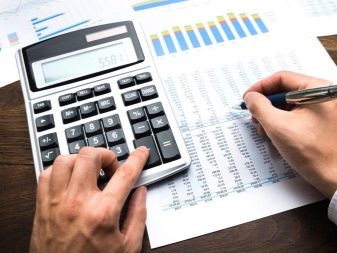All about the profession labor economist

The efficiency of the enterprise directly depends on the correct organization of the work of the employees. To do this, the staff of any large company has a specialist who is directly involved in this. it labor economist.
Peculiarities
Who is this? Labor economist Is a specialist who regulates labor relations at the enterprise and solves emerging issues in the personnel management system. Only according to the order of the director, the company can accept an employee or dismiss him from this position. These are mainly female employees, men are very rare. The employee is listed in the Health and Safety Department, which stands for Department for the regulation of labor and wages. A specialist is appointed to this position, who has diploma of higher or secondary technical education in the field of economics.

Labor economist Category 1 an employee is appointed whose work experience in such a position of the 2nd category is at least three years, and if he replaced other economic professions, then the work experience must be at least 5 years.
Labor economist 2 categories may be a person who has a diploma of higher education in economics and work experience in the engineering profession for at least three years.
A person without work experience can be hired for the position of a labor economist, but with a diploma of higher education or secondary vocational education, but with a mandatory work experience in this position for at least 3 years, or in other professions being replaced with no experience less than 5 years.

Job responsibilities
This profession does not have its own approved professional standard. The professional standard defines a list of requirements for a specialist, therefore, the profession “Labor migration specialist” is the closest to this specialty in the approved standard. Since the specialty is very similar to the labor economist, the company provides job description according to ECTS and professional standard in a similar specialty. First of all, when applying for a new job, an employee gets acquainted with its points. The job description includes such items.
- The employee must take measures to improve the organization of work and the forms of payroll, take measures that can push the employee to increase productivity, and therefore to his material or moral encouragement.
- Draws up and develops successful plans for the year, taking into account the increase in labor prospects and improving its organization.
- Calculates wage funds based on the number of employees and their established salaries. Divides the payroll into categories and areas.
- Analyzes the existing forms of remuneration at the enterprise, proposes innovations that motivate employees for the best performance in their work, which in the future will be encouraged by monetary or moral compensation.
- If the enterprise has increased labor productivity, improved production quality, reduced costs, and increased profits, then he has the right to develop a scheme for spending the additional funds received.
- Introduces measures for material incentives for employees, develops them in accordance with the regulation on bonuses to the enterprise, reduces the calculation of payroll by combining professions between employees or expanding the service area.
- He is directly related to drawing up plans for the development of the social sphere among employees of the organization, develops ways to strengthen discipline among employees and minimize staff drain. Monitors how employees observe labor discipline and spend time during the work shift.
- Based on the existing management structure of the enterprise and the approved salaries of employees, it maintains and draws up the staffing table, makes amendments to it if new positions appear or tariffs increase.
- Based on the current Bonus Regulations, calculates the percentage of monthly bonus accrual.
- Supervises the calculation of wages by type of payment and the expenditure of payroll, monitors the legitimate calculation of various allowances, the correspondence of the names of professions and positions with ECTS, and the adherence of workers to the work and rest routine in accordance with the Labor Code.
- Is engaged in monthly reporting on the data of labor results and wages. Conducts monthly analysis, at the end of the year brings together a report for 12 months.
- It brings together and forms data on the number of employees and their salaries, if necessary, changes or corrects data in regulatory or reference documents.
- Determines how to use the compiled practical programs that allow them to be used in data processing during the closing of the salary for the enterprise. The labor specialist has the right to get acquainted with new solutions and projects at the enterprise that relate to his area of work. If the need arises, he can attract employees from other departments or sections to perform the tasks that he was entrusted with (if it is spelled out in the Regulations on structural divisions), if not, then you need to coordinate your actions with the director of the enterprise and obtain permission from him.


The labor economist is responsible for the late submission of reports or for the poor performance of his labor obligations, which are approved in his job description, for non-compliance with labor laws discovered during his activities, for material losses within,provided for by the civil and labor legislation of Russia.
Knowledge and skills
This specialist must know organization of production and economics, methods and stages of labor planning, documentation on attracting economic remuneration funds, how the number of workers and engineering staff of an enterprise is determined according to the department and profession. Must navigate and understand in ECTS, know the description of the qualifications of the position and its responsibilities. Labor laws, norms and rules of labor protection should also be familiar to him. The economist must know how the official salaries are established at the enterprise, how the allowances and coefficients to wages, various types of additional payments are calculated, how the bonus is calculated; must understandhow computer programs are used to calculate wages and record labor indicators.

Education
Receive diploma of higher education in economics for work as a labor economist can be at any university or college that has economics or personnel management departments. It can be Kazan National Research Technical University named after A. N. Tupolev-KAI, Voronezh State University, the Academy of Labor and Social Relations, which is located in Moscow. On the territory of Russia, in its different regions, there are a lot of institutions where you can get education in this area. It can be obtained both full-time and part-time, both on a budgetary and on a contract basis. For advanced training, you can take courses that last only a few months.
Place of work
The workplace of a labor economist can be any large enterprise where this position is provided... It can be a plant or a trade enterprise, budget organizations of various types of management, where much attention is paid to the organization of work, production rates and various types of incentives.
The employee must have an analytical mindset, because the profession is very versatile and responsible, which requires a lot of knowledge and skills that can only be acquired with experience. It is easier for an experienced specialist to find a job, since university graduates have only some idea of this profession, so the employer is reluctant to take them to his staff. In general, in Russia, the salary of a labor specialist ranges from 20,000 to 70,000 thousand rubles.
The highest wages are observed in the Sakhalin and Amur regions, and the lowest wages are noted in the Khabarovsk Territory and the Republic of Bashkortostan.




